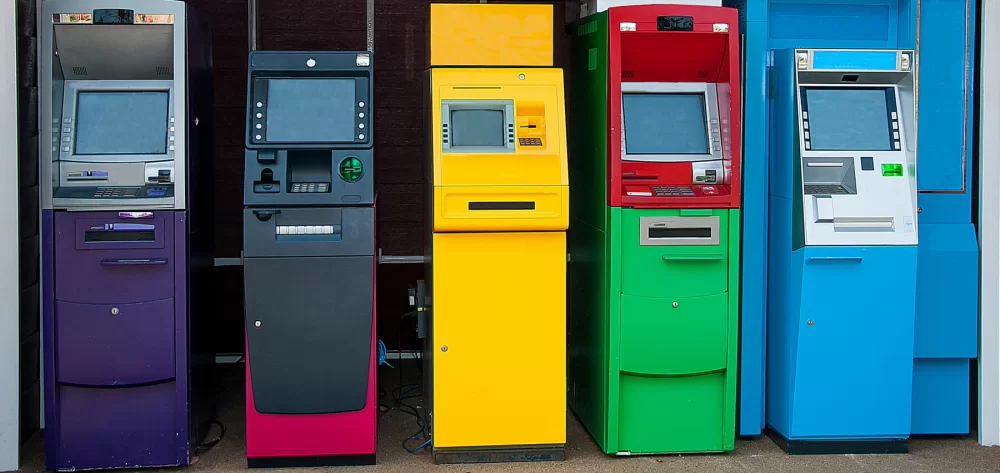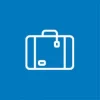Which payment method is best for travel outside of Switzerland? In this guide, moneyland.ch takes a close look at different payment methods and explains which are best-suited to travel and what you should watch out for.
What payment methods can I use when traveling outside of Switzerland?
Debit cards, credit cards, and cash in the local currency are all hugely popular payment methods. You can also make purchases using mobile payment solutions like Apple Pay, Google Pay, and Samsung Pay, which work in most countries. When you pay with your phone, you are charged the same fees as when you pay directly with the credit or debit card which you use with the app. In some countries, you can also make use of popular local mobile payments solutions.
The majority of consumers in Switzerland use credit cards to pay for online purchases from both local and foreign merchants. The new Debit Mastercard and Visa Debit cards can also be used for online payments.
Which kinds of payment cards are there?
Payment cards may share the same dimensions, often the same material (plastic), and look similar. But the differences come to the fore when you use them to make purchases from foreign merchants. This even applies to different cards from the same bank. That is why it is important to understand the difference between card types.
Cards generally fall into two main categories: Debit cards and credit cards.
Payments with debit cards are charged directly to your bank account. These debit cards are widely used in Switzerland:
- Debit Mastercard: This new debit card from Mastercard can be used for both online and offline purchases.
- Visa Debit: This new debit card from Visa can also be used to pay online.
- Postfinance Card: The debit card from the Swiss postal bank Postfinance.
- Maestro: This was the most widely used debit card in Switzerland for around 20 years. However, many Swiss banks now issue the Debit Mastercard and Visa Debit cards instead.
EC cards
The Eurocheque card (EC card) was the first debit card offered by Swiss banks (aside from Postfinance). Although the EC card was phased out around 20 years ago, the term EC card is still widely used in Switzerland as a synonym for debit cards.
When you make purchases with credit cards, the cost is not charged directly to your bank account. These credit cards are widely used in Switzerland:
- Mastercard: The majority of Swiss credit cards use the Mastercard network.
- Visa: Credit cards which use Mastercard’s main competitor, Visa, are also widely used in Switzerland.
- American Express: Credit cards which run on the American Express (Amex) network are not as widely used in Switzerland as those from Mastercard and Visa.
Mastercard and Visa also offer prepaid cards. The difference between these and regular credit cards is that you have to fund your prepaid card account or “load the card,” and you cannot spend more than the amount available in your prepaid account.
Can I use cards to pay at shops, restaurants, and hotels outside of Switzerland?
Debit cards and credit cards from Mastercard and Visa are accepted by many merchants in most countries. But the number of shops and restaurants which accept card payments varies broadly between countries.
In Scandinavian countries, almost all businesses accept card and mobile payments. Some businesses in those countries do not even accept cash payments. In Germany, on the other hand, many restaurants and smaller businesses do not accept credit cards and foreign debit cards.
Postfinance debit cards issued before April 2022 can only be used to pay directly at terminals in Switzerland. Postfinance debit cards issued since April 2022 use both the Postfinance and the Mastercard networks, and can be used to pay at local and foreign merchants which accept either the Postfinance Card or the Debit Mastercard.
Which cards can I use to withdraw money outside of Switzerland?
All debit and credit cards can be used to make cash withdrawals. But whether or not you can make a withdrawal at a specific ATM or bank depends on which card you use. In some cases, you may not be able to make cash withdrawals, and the exact reasons can be difficult to determine. For this reason, it can be beneficial to carry more than one type of card with you.
What should I watch out for when using ATMs?
Using a credit card to get cash at ATMs is not recommended. Most credit cards have very high cash advance fees which you pay when you withdraw money. Typically, the minimum fee is 10 francs per withdrawal, with a 4-percent fee applying to larger amounts. Tip: Use debit cards to get cash at ATMs, as it is much cheaper than using credit cards. Count on paying around 5 francs per withdrawal in fees when you use a debit card to get cash.
But that is not all: Many foreign ATM operators charge you additional fees for the use of their ATMs. For example, you may be charged 103 euros for a 100-euro withdrawal. ATMs generally inform you about ATM fees before you make a withdrawal.
Examples of ATM operators in Europe which charge high ATM fees are Travelex and Euronet. Their ATMs are often found in shops and gas stations. Both Travelex and Euronet often stand out because of their inflated fees. ATMs which are operated by banks are more likely to have low fees, or none at all.
In many countries, ATM fees are very common. Make sure to find out which bank charges the lowest ATM fees before you travel. You can also check and compare ATM fees after getting to your destination country. To get informed before you leave, take a look at Google forums and travel blogs on which travelers share their experiences.
There is one more pitfall to watch out for. Foreign ATMs will give you the option of charging the withdrawal in Swiss francs instead of the local currency. In many cases, the exchange rate used for the conversion is unfavorable. As a general rule, charging withdrawals in the local currency and not in Swiss francs is recommended. You can find more information in the guide to dynamic currency conversion.
Which debit card fees apply outside of Switzerland?
This table provides an overview of the fees you pay when you use Swiss debit cards to purchase goods and services outside of Switzerland, or make cash withdrawals. The costs of debit card transactions are shown in the terms and conditions of the private account or bank package which is linked to your debit card.
| Bank |
Fee for card payments |
Fee for cash withdrawals at an ATM |
| Bank Cler |
CHF 1.50 |
CHF 5.00 |
| Basler Kantonalbank |
CHF 1.50 |
EUR 3.50 or CHF 5.00 |
| Berner Kantonalbank |
None |
CHF 5.00* |
| Banque Cantonale de Genève |
0.5%, minimum CHF 0.50 |
CHF 5.00 |
| Luzerner Kantonalbank |
None |
CHF 5.00* |
| Migros Bank |
CHF 1.50 |
CHF 5.00 |
| Postfinance |
1.5% ** |
CHF 5.00* |
| Raiffeisen |
1.25%, minimum CHF 1.50 |
CHF 4.50 |
| Sparkasse Schwyz |
None |
CHF 5.00 |
| St. Galler Kantonalbank |
CHF 1.50 |
CHF 5.00 |
| Swissquote |
No fee ** |
CHF 4.90 |
| UBS |
2%, minimum CHF 1.00 |
CHF 5.00* |
| Valiant |
CHF 1.5% |
CHF 5.00* |
| Banque Cantonale Vaudoise |
CHF 2.00 plus 0.5% |
CHF 5.00 plus 0.5% |
| Yuh |
0.95% |
CHF 4.90 |
| Zak (Bank Cler) |
None |
CHF 5.00* |
| Zürcher Kantonalbank |
CHF 1.25%, maximum
CHF 1.50 |
CHF 5.00 plus 0.5% |
* Some bank packages and options include fee-free cash withdrawals at foreign ATMs. Depending on the product, the number of free cash withdrawals may be limited or unlimited.
** For transactions in 12 major currencies.
In addition to the fees shown here, the currency exchange rates used can add another, hidden cost.
Which credit card fees apply outside of Switzerland?
The following table provides an overview of the fees you pay when you use Swiss credit cards to pay or to get cash outside of Switzerland. Card issuers typically use the same fees for all of the cards they issue. Only a few issuers use different foreign transaction fees for their various credit cards.
| Bank / card |
Issuer |
Foreign
transaction fee |
Currency exchange
rate markup |
Additional fee for cash
withdrawals at ATMs |
| Bank Cler |
Viseca |
1.75% |
1.746% |
4%, minimum CHF 10.00 |
| Cashback |
Swisscard |
2.5% |
1.718% |
3.75%, minimum CHF 10.00 |
| Certo |
Cembra Money Bank |
1.5% |
2.124% |
3.75%, minimum CHF 10.00 |
| Coop Supercard |
TopCard |
1.5% |
1.662% |
3.75%, minimum CHF 10.00 |
| Cornèrcard |
Cornèrcard |
1.2% |
2.651% |
3.75%, minimum CHF 10.00 |
| IKEA Family |
Cembra Money Bank |
1.5% |
2.124% |
3.75%, minimum CHF 10.00 |
| Kantonalbanken |
Viseca |
1.75% |
1.746% |
4%, minimum CHF 10.00 |
| Manor |
Viseca |
1.5% |
1.746% |
4%, minimum CHF 10.00 |
| Migros Bank |
Viseca |
1.75% |
2.004% |
4%, minimum CHF 10.00 |
| Migros Cumulus Visa |
Migros Bank |
None |
2.004% |
2.5%, minimum CHF 10.00 |
| Neon* |
Hypothekarbank Lenzburg |
None |
No information |
1.5% |
| Postfinance |
Postfinance |
1.7% |
1.662% |
3.5%, minimum CHF 10.00 |
| Raiffeisen |
Viseca |
1.75% |
1.816% |
4%, minimum CHF 10.00 |
| Swiss Miles & More |
Swisscard |
2.5% |
1.718% |
3.75%, minimum CHF 10.00 |
| UBS |
UBS |
1.75% |
1.662% |
4%, minimum CHF 10.00 |
| Valiant |
Viseca |
1.75% |
1.746% |
4%, minimum CHF 10.00 |
* The Neon card is a prepaid card.
For card issuers which offer various categories of credit cards, the fees shown are those for the standard credit card. The fees are identical for the Mastercard and Visa versions of the same credit card.
The credit card foreign transaction fee applies to both credit card payments from foreign merchants, and to cash withdrawals outside of Switzerland. When you get cash, you pay the cash withdrawal fee – known as the cash advance fee in the case of credit cards – in addition to the foreign transaction fee.
The currency exchange rate used has a direct impact on costs. The credit card comparison on moneyland.ch accounts for the hidden cost of currency exchange markups using ongoing sampling of the euro-franc exchange rates. The currency exchange rate markup is the average markup above the interbank rate for euro-franc exchanges as per the most recent samplings by moneyland.ch. The actual markup can change at any time.
How do I get the best possible currency exchange rate?
It is easy to overlook the fact that the currency exchange rates used by your card can have a bigger impact on your total costs than the foreign transaction fee. The worse your bank’s exchange rate is, the more expensive the card is for you, and the more profitable it is for your bank.
Currency exchange rates can vary broadly between banks and currencies. As a general rule, markups are higher for less common currencies. For euros and US dollars, Swiss banks often add a markup of around 2 percent on top of the interbank exchange rate. The markups for more exotic currencies are often higher than 5 percent.
Neobanks like Neon, Yuh, Revolut, and Wise have noticeably better exchange rates.
Is it worth withdrawing euros in Switzerland before traveling?
If your Swiss bank offers euro withdrawals at its ATMs, then you can generally make these withdrawals without paying a fee. But many banks use special, unfavorable banknote rates for cash withdrawals. According to a moneyland.ch study, withdrawing euros and US dollars at your bank is cheaper for amounts up to 100 francs. For larger withdrawals in euros or US dollars, it is often cheaper to withdraw the money at foreign ATMs using your debit card, as many Swiss banks use their more favorable forex rates in this case.
Withdrawing exotic currencies like the Thai baht in Switzerland is practically never worth it. It is usually cheaper to withdraw these currencies at ATMs in your destination country using a debit card. Just make sure to watch out for the potential ATM costs mentioned higher up in this guide.
If your card has exceptionally low fees and markups for foreign transactions, then paying directly with the card whenever possible instead of withdrawing cash can make more financial sense.
Can I withdraw money at the counter outside of Switzerland?
It is possible to make cash withdrawals at the counters of money changers and banks. But you are normally charged very high fees for withdrawing money this way. Only withdraw cash at the counter while travelling in emergencies.
These are the most important tips for using payment cards while traveling:
- Neobanks like Neon, Yuh, and Yapeal often do not charge foreign transaction fees when you make purchases from foreign merchants. They also often have more favorable currency exchange rates.
- Paying for purchases directly using cards from neobanks instead of cash often works out cheaper than making cash withdrawals.
- Some Swiss banks offer accounts or packages which do not have fees for withdrawing cash outside of Switzerland. If you make a lot of cash withdrawals abroad, using one of these accounts can save you money on cash withdrawals.
- In many cases, paying for small purchases with a credit card is cheaper than paying with a debit card. On the other hand, using a debit card to pay large bills often works out cheaper. This rule of thumb does not normally apply to neobank cards.
- Never use a credit card to get cash. Always use debit cards for cash withdrawals.
- Do not make use of dynamic currency conversion offers. Always decline when you are asked if you want to pay in Swiss francs. Pay in the local currency instead. That also applies to cash withdrawals in foreign currencies.
- Get informed about the fees charged by your bank before you travel. You can find additional information online – including information about ATM fees in many countries.
More on this topic:
How to get the best deals when changing money
Credit card foreign transaction fees explained
Dynamic currency conversion explained
Compare Swiss credit cards now










